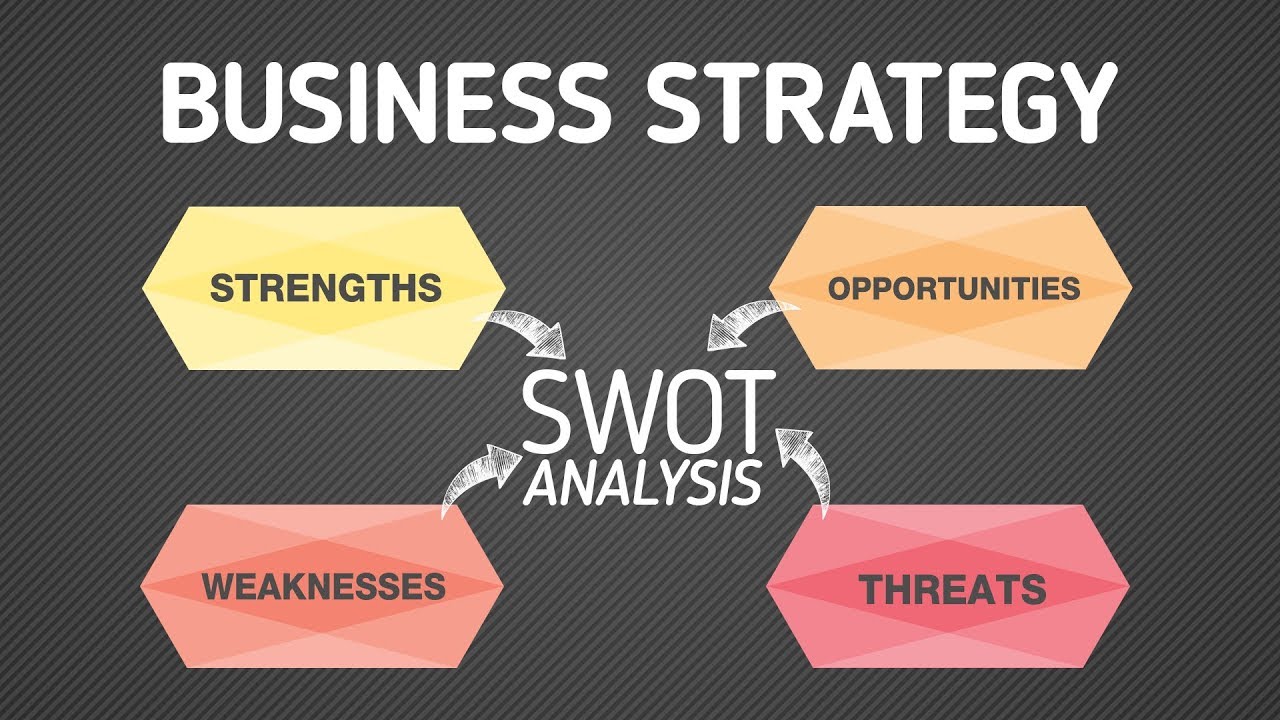SWOT Analysis for Startups
Don’t start your own business until you have read this!
S.W.O.T. is an acronym that stands for Strengths, Weaknesses, Opportunities, and Threats.
SWOT analysis is a business analysis process that ensures that objectives for a project are clearly defined and that all factors related to the project are properly identified. The SWOT analysis process involves four areas: Strengths, Weaknesses, Opportunities and Threats – All have the potential to impact the success of a startup. Essentially, a SWOT analysis is a roadmap for how you should move forward with your business.
Strengths and Weaknesses are internal to the company (think: reputation, patents, location). You can change them over time but not without some work. Opportunities and Threats are external (think: suppliers, competitors, prices)—they are out there in the market, happening whether you like it or not. You can’t change them.
SWOT Analysis for Startups
SWOT Analysis
The following is a brief summary of SWOT Analysis components:
- Strengths
Strengths in SWOT analysis are the attributes within an organization that are considered to be necessary for the ultimate success of a project. Strengths are resources and capabilities that can be used for competitive advantage. Examples of strengths that are often cited include:- Strong brand names
- Good reputation
- Cost advantages of proprietary know-how
- Weaknesses
The factors within the SWOT analysis formula that could prevent successful results within a project are Weaknesses. Weaknesses include factors such as an abundance of rivalry between departments, a weak internal communication system, lack of funding and an inadequate amount of materials. Weaknesses can derail a project before it even begins. Other Weaknesses include:- Weak brand name
- Poor reputation
- Ineffective and high cost structure
- Opportunities
Opportunities are classified as external elements that might be helpful in achieving the goals set for the project. These factors could involve vendors who wish to work with the company to help achieve success, the positive perception of the company by the general public, and market conditions that could make the project desirable to the segment of the market. Additional Opportunities include:- Arrival of new technology
- Unfulfilled customer needs
- Taking business courses (training)
- Threats
These external factors could gravely affect the success of the project or business venture. The possible threats that are critical to any SWOT analysis include a negative public image, no ready-made market for the final product and the lack of vendors who are able to supply raw materials for the project. Some other threats include:- Trend changes
- New regulations
- New substitute products
SWOT Analysis for Startups
SWOT Analysis for Startups – Quick Guide
Are you considering to start a business, then this is a must read for you! I strongly recommend that you read this, answer the questions as honestly as possible before you start. In it you will find an example of a SWOT analysis pertaining to startups and entrepreneurship.
It’s very much the usual comparison of Strengths, Weakness, Opportunities, and Threats, but instead of examining a specific business idea, this SWOT analysis assesses both the business plan and yourself.
It takes a dive into looking at personal qualities for instance. As in, apart from competitive advantages, do you also have the personal qualities required for startup and entrepreneurship success? To encourage objective examination, all details are phrased into questions. To use this guideline, you must answer each question honestly too.
Strengths
- Does your intended startup enjoy a competitive advantage over industry competitors?
- If you have an advantage, is it sustainable in the long run?
- Do you have the relevant knowledge or skills necessary for managing your intended startup?
- Do you have the funds, or the access to funds, to weather the initial low-revenue period of all new businesses?
- Are you able to attract ideal manpower?
- Do you have competitive access to external parties necessary for your startup to operate i.e. suppliers?
- Do you have access to technology that would enhance your operations?
- Do you have access to reliable AND continuous data inflow i.e. information necessary for your business to develop? For example, customer demographics, industry trends, etc.
- Can you benefit from the typical advantages of new companies? For example, flexibility?
- Do you have the contacts needed to fuel AND grow your business?
- What personal trait of yours would enhance your startup?
Summary: Strengths are the weapons you have on hand to sharpen your business edge. They are also the weapons you are able to utilize.
Also, potential advantages arising from favorable circumstances in the future are not strengths. These are vague opportunities at best. It is crucial to acknowledge the difference.
Weaknesses
- If you are operating on borrowed funds, what burdens would that impose on your startup?
- Are you affected by any industry barriers of entry? Legitimately, or not?
- What competitive disadvantages would you suffer from?
- Is your business model aligned with the current economic or industry climate?
- Do you need to rely on others to run your startup, be it technically, for marketing, or for daily operations?
- Are you able to secure appropriate manpower quickly and cost-effectively?
- Are you able to efficiently manage your costs of sale?
- Are you handicapped by the disadvantages of new companies? For example, lack of portfolio?
- Are you personally able to devote the kind of hours and attention necessary to sustain a startup for at least three years?
- Are you ready to forgo your personal pastimes, passions, and recreations, in order to devote your best efforts to your startup?
- Do you have existing financial obligations that would weaken your ability to weather a period of low or no income?
- What personal trait of yours would make you an unappealing leader?
- Is your health able to weather the stress of being the owner of a struggling startup?
Summary: Weaknesses are the inherent shortcomings of your business model, and of yourself.
Realistically, it is impossible to be completely free of weaknesses – I am highly skeptical of plans that have a “remedy” for every weakness. My personal opinion is that the crux should be on acknowledging weaknesses and knowing how to contain damage. Obviously, downplaying any helps in no way at all.
Opportunities
- What economic or industry trends could you benefit from?
- Are there any existing industry schemes, grants, or loans that would be of help?
- What sort of synergy could you achieve with other companies? Both competitors and suppliers?
- What developing social trends could your intended business benefit from?
- Are there any manpower talents or technological benefits that you could exploit?
- Are there any significant reasons for your targeted clientele to switch to using you?
- Are there any industry gaps for you to fill?
- Are there other-parties seeking to partner or invest in your intended business?
- Do you possess any personal credentials or experience that might attract industry cooperation?
- Are your existing social circles beneficial to your aspirations to be an entrepreneur? As in, friends who would readily buy from you.
- Is the current socio-political environment beneficial to your aspirations to be an entrepreneur?
Summary: Opportunities are the empowerments offered to you by the environment you choose to operate in.
By that definition itself, it is implied that opportunities are neutral and available to everybody. Because of that, it is detrimental to consider opportunities as strengths; just because the pie is there doesn’t mean you will eat it, or get to eat it alone. This brutal reality is often overlooked by believers in SWOT analysis.
Threats
- What industry regulations would negatively affect your startup?
- Is there any public or industry perception that might hamper your overall growth?
- How would competitors retaliate?
- How easy would it be to poach your staff?
- Are there any projected industry downturns that could severely impact you?
- Would any form of technological development severely impact you?
- Do you have personal commitments that might compete with your startup for your time and attention?
- Are your existing social circles detrimental to your aspirations to be an entrepreneur? For example, friends already operating a similar setup.
- Is your current socio-political environment detrimental to your aspirations to be an entrepreneur?
Summary: Threats are the dangers arising from the environment you choose to operate in. Threats are also very much outside of anybody’s control, and so you shouldn’t lose too much sleep over them.
The important thing is thus to anticipate them, and to have strategies on hand to limit harm when they hit hard.
All the Success!
For more information, call or email us today.
3B Hakeem Dickson Road, Lekki Phase 1, Lagos Nigeria
+234 1 291 7328, +234 803 343 4776, +234 809 334 4776, +234 808 933 8444
info@bervidson.com , www.bervidson.com



